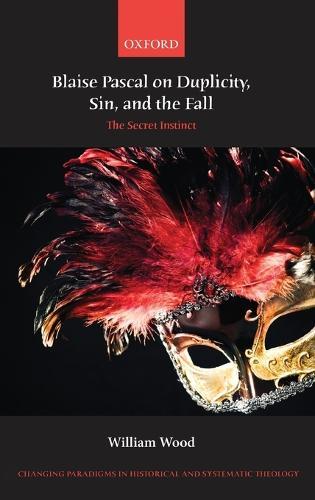Overview
Blaise Pascal's account of the cognitive consequences of the Fall is clearly set out by William Wood in the first book on Pascal's theology to appear in English in more than forty years. Wood's central claim is that for Pascal, the Fall is a fall into duplicity. Pascal holds that as fallen selves in a fallen world, human beings have an innate aversion to the truth that is also, at the same time, an aversion to God. According to Pascal, we are born into a duplicitous world that shapes us into duplicitous subjects, and so we find it easy to reject God continually and deceive ourselves about our own sinfulness. Pascal's account of the noetic effects of sin has long been overlooked by theologians, but it is both traditional and innovative. It is robustly Augustinian, with a strong emphasis on the fallen will, the darkened intellect, and the fundamental sin of pride. Yet it also embraces a view of subjectivity that seems strikingly contemporary. For Pascal, the self is a fiction, constructed from without by an already duplicitous world. The human subject is habituated to deception because it is the essential glue that holds his world together. This book offers more than just a novel interpretation of Pascal's Pensées. Wood demonstrates, by exegetical argument and constructive example, that 'Pascalian' theology is both possible and fruitful.
Full Product Details
Author: William Wood (Fellow and Tutor in Theology, Oriel College, Oxford)
Publisher: Oxford University Press
Imprint: Oxford University Press
Dimensions:
Width: 15.20cm
, Height: 2.20cm
, Length: 22.20cm
Weight: 0.438kg
ISBN: 9780199656363
ISBN 10: 0199656363
Pages: 252
Publication Date: 04 July 2013
Audience:
College/higher education
,
Undergraduate
,
Postgraduate, Research & Scholarly
Format: Hardback
Publisher's Status: Active
Availability: To order

Stock availability from the supplier is unknown. We will order it for you and ship this item to you once it is received by us.
Reviews
On the whole, Wood's study on sin and self-deception starting from Pascal's PensA(c)es is very convincing ... This [is an] elegantly presented, imaginative and pithy work. Jochen Schmidt, Theologische Literaturzeitung There is much of value in this and the level of discussion is generally excellent. John Henry, The Expository Times
On the whole, Wood's study on sin and self-deception starting from Pascal's PensA (c)es is very convincing ... This [is an] elegantly presented, imaginative and pithy work. * Jochen Schmidt, Theologische Literaturzeitung * There is much of value in this and the level of discussion is generally excellent. * John Henry, The Expository Times *
There is much of value in this and the level of discussion is generally excellent. John Henry, The Expository Times
Author Information
William Wood is Fellow and Tutor in Theology at Oriel College, Oxford.




